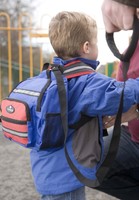Keeping kids safe abroad

Parents are being warned to be more aware of potential risks facing their children whilst holidaying abroad, in order to reduce the number of children being injured.
The word of warning comes from child safety manufacturer Clippasafe, after the latest figures from the European Child Safety Alliance highlighted that in some countries, up to 72 per cent of children admitted to hospital are foreigners.
Roger Cheetham, Clippasafe’s managing director commented: “It is easy to overlook the risks and dangers that our children face whilst enjoying the relaxed holiday atmosphere. However, parents should take extra safety precautions whilst in unfamiliar situations abroad to ensure their children are safe at all times.”
Roger has outlined some potential holiday dangers, with advice on how to ensure a stress-free holiday:
Road accidents
Road traffic accidents are the leading cause of injury-related deaths worldwide. According to research from the Foreign and Commonwealth Office, two thirds of Brits who have driven abroad have run into problems.
Unfamiliar roads, driving on the opposite side, poor quality surfaces and local driving laws and customs are all cause for confusion.
Parents and children must wear seat belts, which can reduce the risk of death in a crash by 45 to 60 per cent. Bringing child and infant safety and booster seats from home will also reduce injuries by 54 per cent for children and 70 per cent for infants.
Given the risks, extra care should also be taken by pregnant drivers and passengers. It is certainly worth investing in a travel safety device that will help to keep the seat belt below the pregnancy bump. That way, if the worst does happen, and a crash does occur, the impact will be transferred via the hips and pelvis rather than the abdomen and womb.
Holiday home safety
Most people take a great deal of time to child-proof their homes and a similar approach should be taken for holiday homes, villas, apartments and hotel rooms. It is obviously not practical to pack every child safety product, but there are some key items that you could take.
Unfamiliar rooms can be quite scary for young children, and also potentially dangerous if they get out of bed at night. A simple night light will help to create a soothing environment and highlight any potential trip hazards – just remember to take an adapter plug!
In terms of electrical sockets, these present exactly the same risk to children as they do at home. In some cases they can be even more dangerous, given the fact that some countries have varying degrees of safety standards. Be sure to take socket protectors that have European or international pins.
I would also advise taking some corner guards as holiday accommodation is not always designed with young children in mind. Sharp corners on items such as tables, drawers and breakfast bars can result in a nasty bump to the head, especially when you have excited youngsters running around.
Drowning
With beach and poolside holidays being a popular choice for families, it might not come as a surprise that drowning is the second leading cause of death of children in Europe whilst on holiday.
Children love to explore, but parents or family members should always accompany them if they want to take a dip, and make sure they never stray further than a pace away, as they may wander towards riptides or undertows; be victims to quickly changing tides; or injure themselves by slipping by the pool. It is also wise to discourage children from diving to prevent any bumps to the head, and most importantly make sure they wear inflatable arm wings whenever they go swimming.
Missing children
Tragically, there is a risk of children going missing whilst holidaying abroad. Youngsters will be tempted to wander around exciting new places, leaving them vulnerable to getting lost in unfamiliar surroundings or worse, being taken by a stranger.
Parents are advised to link hands with their child at all times, and even use wrist links or safety harnesses as extra precautions to prevent them accidentally wandering off and getting lost.
Travelling alone
Older teenagers still face risks when travelling alone or backpacking, especially when abroad. Almost a third of British people who travel abroad independently are likely to face a major problem while they are away.
Teenagers are advised to travel with friends where possible, sticking to a pre-planned itinerary that other people are aware of. A list of emergency and other useful contact numbers should also be kept close at hand in case of problems. It’s also wise not to carry too much cash and ensure valuable items such as phones, cameras and ipods are kept out of sight.
Planning ahead can also prevent a lot of problems. Make sure they get full immunisations and have taken out proper travel insurance. The foreign office website should also be checked before travelling to avoid areas of potential danger.
For more information on Clippasafe, visit: clippasafe.co.uk

